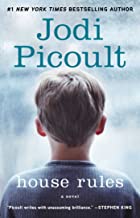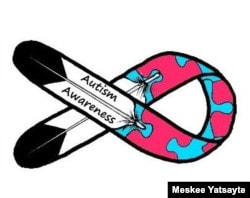This is a fictional story about a young man with Asperger’s, on the Autism Spectrum; from different perspectives –
Emma (Jacob’s Mother)
I follow my adolescent son Jacob into the kitchen and watched him back down into a corner. “What we’ve got here”, he mutters in a sudden southern drawl, “Is a failure to communicate.” He slouches to the floor hugging his knees.
When he cannot find the words for how he feels, he borrows someone else’s. This scene comes from the movie, “Cool Hand Luke.”
Somewhere around 2 years old, I started to think, “Where have you gone?” as I watch him lying on the floor spinning the wheels on his toy truck; staring with his face only inches away.
I didn’t notice at first when friends ‘forgot’ to tell me when the next neighborhood playdate was. Or, that every minute of my life was occupied by Jacob.
In my mind, Asperger’s is a label to describe, not the traits Jacob ‘has’, but the one’s he ‘has lost’.
Isolation, and a fixation on one particular subject. An inability to connect socially. When he was diagnosed, I was already pregnant with his brother Theo. Jacob wasn’t the only one diagnosed, I might as well have Asperger’s, too.
Now, at 18 years old, Jacob looks like a normal young man. He’s clearly intelligent, but having his day disrupted fills him with fear. It makes him feel like I would if I suddenly had to bungee jump off the Sears Tower. He starts screaming, one keening note that has become the soundtrack of my life. To calm him, I press my lips close to his ear, “I shot the sheriff,” I sing, “but I did not shoot the deputy.”
< My Thoughts > “I shot the sheriff…”
Our Sonny loves certain phrases from “Toy Story”. Here are some of them –
“Come on sheriff there’s a kid in that house who needs us!” (We are trying to get him out of the house.)
“I have a laser and I will use it!” (He is not responding to us.)
“To infinity and beyond!” (He’s complying. He just loves this phrase.)
“There seems to be no signs of intelligent life anywhere!”
(When we can’t find him. Or, he is not interested in a task.)
Mr. Potato Head – “My ear! Has anyone seen my ear?”
(When we can’t find something he is looking for.)
“This is next month’s garage sale fodder, for sure!”
(When he won’t pick up his toys.)
Emma (Jacob’s Mother) continues – He eats by color. I don’t remember how it started, but now it’s a routine –
Monday’s food is green
Tuesday’s food is red
Wednesday’s food is yellow
Thursday’s food is brown
Friday’s food is blue
On the weekend, it is a ‘color free-for-all’ meal.
But, never anything ‘orange’. Jacob can’t tolerate anything ‘orange’. Even when we drive by something ‘orange’, I can feel him drawing in his breath and holding it until we pass.
In case you’ve been confronted with the evidence that you’ve failed as a mother. In case you have been caught between what you ‘want’ to do and what you ‘should’ do. You are not alone.
Asperger’s is not a ‘disability’, it’s a ‘different’ ability. As a cry escapes her lips, Emma exclaims, “Jacob is not my cross to bear, he is my son!
Every day, it breaks my heart to give him his pills. They cost thousands of dollars each month. They are covered by medical insurance and help him cope.
School provides a ‘sensory break’ when he becomes overwhelmed. But what happens when he is out in public and needs to get away from all the confusion, so he can calm himself down?
Would I rather have a son who didn’t struggle so hard? Or, who could make his way in the world without resistance? No, because that child would not be Jacob. He would not be the boy I love so fiercely. The son who watches the Casablanca video with me and can recite all of Bogey’s dialogue.
Jacob’s father is a towhead, with hair the color of corn silk. Or, at least he was when he walked out on us 15 years ago.
Is Jacob violent towards others? “No”, Emma answers, “but he will fight back when perceiving to be provoked. He doesn’t communicate well and his thoughts are frequently ‘jumbled’. He talks in a monotone and doesn’t show a lot of emotion. Often, what he says is ‘shocking’.”
< My Thoughts > “…violent towards others…”
Jacob’s Asperger’s allows him no ‘empathy’ for the victim of a crime. He is not empathetic when viewing the crime scene in his favorite Crime Busters TV series; nor, when seeing one on live TV news. He is unable to discern between a ‘real’ and a ‘fake’ crime scenes.
Also, in Jacob’s mind, the legal system doesn’t find you ‘innocent’; just either ‘guilty’, or ‘not guilty’. Jacob’s character in the book clearly shows how Asperger’s impairs his ability to understand the consequences following the ‘commission of a crime.
Rich (Jacob’s law enforcement friend)
Jacob is the kind of kid who is obsessed with crime scenes and their analyses. Who hangs out at crime scenes, but won’t look you in the eye. When confronted, his eyes are shinning and his mouth is bent into a crooked smile. This is ‘typical’ behavior of someone who is acting guilty, and it’s confusing to others who don’t see his ‘disability’.
The Americans with Disability Act prohibits discrimination by states or local governments, including the court system. A person with disabilities is defined as a person with physical or mental impairments that substantially limit one or more life activities; like communication, or is perceived by others as having a physical or mental impairments ‘disability’. Law and the precedence regarding crime and ‘disability’ vary from state to state.
Theo (Jacob’s brother) –
I’m no saint. I’m supposed to make exceptions for Jacob. It’s one of the unwritten ‘House Rules’. There are times when I do things to drive Jacob crazy, but then I wind up feeling bad for my mom. I hear her crying when she thinks we are asleep. That’s when I realize that she didn’t sign up for this kind of life, either.
Me, I think of my father as the sperm donor who checks in once a month. He has never been to one of my birthday parties; unless you count when I was born.
So, I act like the big brother. I run interference. I’m the one who physically drags him away from conversations when he’s starting to freak people out by being too intense. I’m the one who tells him when he’s flapping. I go to class to tell his teachers that he’s had a rough morning because we ran out of his soy milk.
< My Thoughts > “…he’s flapping …we ran out of his soy milk.”
Ritualistic behaviors, such as ‘flapping’ are somewhat comforting, giving a person with autism a feeling of being in control. That person may continue trying to calm themselves long after the disturbing stimuli has ceased. And, they may be unable to bring themselves out of prolonged stimming, even though the behavior isn’t calming them.
Our Sonny also has a daily ritual of checking the degree of ‘fullness’ of containers, both in the fridge and in the cupboards. Even if it isn’t something he likes to eat. My guess is that he figures that dad may start some uncontrollable stimming if the cereal box comes up empty, in the morning.
Theo thought that last year, when he started high school, he could start life over. The kids there knew nothing about Jacob. “I hung out with the cool guys. Then one day, Jacob found me in the cafeteria with my friends. I introduced him, and that was a huge mistake.”
Jacob (Fictional main character with Asperger’s).
My brother Theo puts up with a lot, I suppose. He’s there for me when I get really upset. Like if plans don’t work out, or if I can’t control what is happening. I will go all ‘Hulk’ – screaming, swearing, hitting (although I have never hit Theo). I just go in his room and mess up his stuff.
Here are things I can’t stand –
1. The sound of paper being crumpled
2. Flickering lights
3. Having plans change
4. Missing Crime Busters” at 4:35 pm every afternoon on TV.
5. When mom doesn’t put my clothes away in rainbow order (ROYGBIV); and without touching
I like wearing headphones, except it makes me look like an Air Traffic Controller. I like weighted blankets and Bob Marley songs. And, I follow our House Rules. I like Crime Scene Investigations (CSI) Series I have seen. I like to watch crime investigators and creating ‘crime scenes’, using corn syrup and red food dye. I take Crime Scene notes, and keep them in notebooks.
There’s a lot about my father that reminds me of ‘me’. I have a list of questions for him, if I ever get a chance to ask him.
- If it hadn’t been for me would you have stayed?
- Were you ever sorry you left?
- Do you think one day we could be friends?
- If I try harder, would you come back?
< My Thoughts > “…reminds me of ‘me’.”
When Jacob’s father does come back to visit the family, it seems that he too sees some spectrum similarities.
Sorry... working on a LINK to find the book, House Rules by Jodi Picoult, on Amazon.com. This story is a look into one of the ways that someone can experience being on the autism spectrum.
See my website's Paid Link Disclosure
###


 RSS Feed
RSS Feed